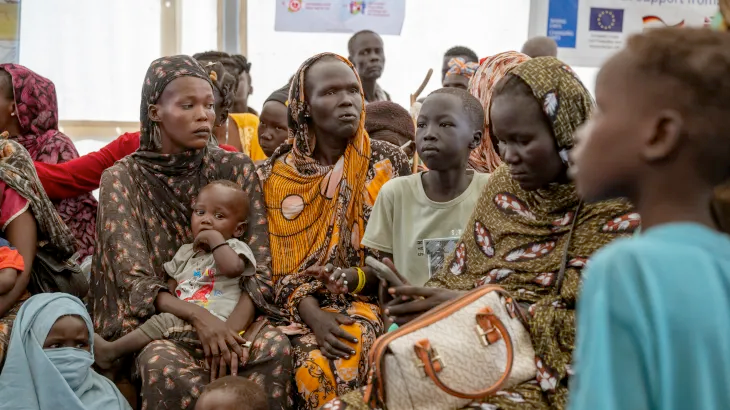UN warns of new atrocities against Rohingya in Myanmar
- United Nations

- Apr 18, 2024
- 3 min read
Updated: Apr 20, 2024

Myanmar Tatmadaw troops on patrol in Rakhine state, Myanmar
UN HCHR Türk warns of new atrocities against Rohingya in Rakhine. Myanmar
19 April 2024
UN Human Rights Chief Volker Türk today warned that intensified fighting in Rakhine State between the military and the Arakan Army, alongside tensions being fuelled between the Rohingya and ethnic Rakhine communities, pose a grave threat to the civilian population. He warned of a grave risk that past atrocities will be repeated.
Since the year-long informal ceasefire between the two sides broke down last November, 15 of Rakhine’s 17 townships have been affected by fighting, resulting in hundreds of deaths and injuries, and taking the number of displaced to well over 300,000.
“Rakhine State has once again become a battleground involving multiple actors, and civilians are paying a heavy price, with Rohingya at particular risk,” the High Commissioner said. “What is particularly disturbing is that whereas in 2017, the Rohingya were targeted by one group, they are now trapped between two armed factions who have a track record of killing them. We must not allow the Rohingya to be targeted again.”
The military has been fast losing ground to the Arakan Army (AA) throughout northern and central Rakhine. This has led to intensified fighting in the townships of Buthidaung and Maungdaw, ahead of an expected battle for the Rakhine State capital, Sittwe. The two townships are home to large Rohingya populations, putting them at grave risk.
“Facing defeat, the military has outrageously started to forcibly conscript, bribe and coerce Rohingya into joining their ranks. It is unconscionable that they should be targeted in this way, given the appalling events of six years ago, and the ongoing extreme discrimination against the Rohingya including the denial of citizenship,” Türk said.
Some reports say the military is forcing the Rohingya recruits or villagers to burn ethnic Rakhine homes, buildings or villages. Ethnic Rakhine villagers have allegedly responded in kind by burning Rohingya villages. The UN Human Rights Office is trying to verify all reports received, a task complicated by a communications blackout throughout the State.
Türk said disinformation and propaganda are also rife, pointing to claims that “Islamic terrorists” have taken Hindus and Buddhists hostage. “This was the same kind of hateful narrative that fuelled communal violence in 2012 and the horrendous attacks against the Rohingya in 2017,” he said.
Since the start of the year, the AA has positioned itself in and around Rohingya villages effectively inviting military attacks on Rohingya civilians.
On 15 April, the Médecins Sans Frontières office and pharmacy were torched in Buthidaung, along with some 200 homes. Hundreds have fled and are reported to be taking refuge in a high school, the grounds of the former hospital, and along roads in Buthidaung town. With both the Maungdaw and Buthidaung hospitals having been shut by the military in March and with the conflict intensifying, there is effectively no medical treatment in northern Rakhine.
“The alarm bells are ringing, and we must not allow there to be a repeat of the past,” Türk said. “Countries with influence on the Myanmar military and armed groups involved must act now to protect all civilians in Rakhine State and prevent another episode of horrendous persecution of the Rohingya.”
For more information and media requests, please contact:
In Geneva:
Ravina Shamdasani - + 41 22 917 9169 / ravina.shamdasani@un.org
Jeremy Laurence - +41 22 917 9383 / jeremy.laurence@un.org
Marta Hurtado - + 41 22 917 9466 / marta.hurtadogomez@un.org






